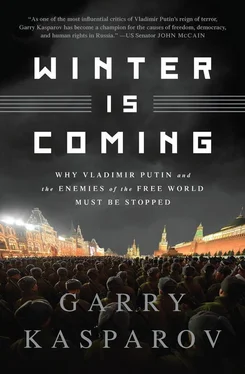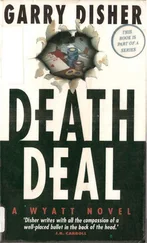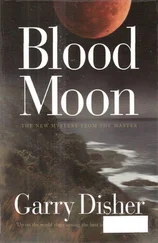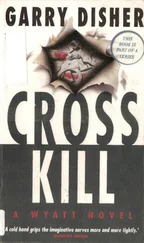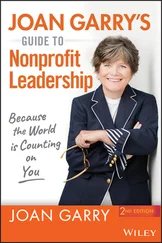Putin is no master strategist. He’s an aggressive poker player facing weak opposition from a Western world that has become so risk averse that it would rather fold than call any bluff, no matter how good its cards are. In the end, Putin is a Russian problem, of course, and Russians must deal with how to remove him. He and his repressive regime, however, are supported directly and indirectly by the free world due to this one-way engagement policy. We must recall the painful memories about the fatal dangers of appeasing a dictator, of disunity in the face of aggression, and of greedily grabbing at an ephemeral peace while guaranteeing a lasting war.
As always when it comes to stopping dictators, with every delay the price goes up. Western leaders have protested over the potential costs of action in Ukraine at every turn only to be faced with the well-established historical fact that the real costs of inaction are always even higher. Now the only options left are risky and difficult, and yet they must be tried. The best reason for acting to stop Putin today is brutally simple: it will only get harder tomorrow.
CONCLUSION
TIMELESS VALUES IN A SHIFTING WORLD
It is impossible to pinpoint the exact moment at which we stopped looking for leadership from our leaders and started caring only about realpolitik and lesser evils. Before the last rivets of the Iron Curtain hit the ground, as the West patted itself on the back and squandered the peace dividend, voters and parliaments around the world began looking for managers instead of visionaries.
I was reminded of this very keenly on December 11, 2011. Death played a cruel twist when he took the poet, dissident, and human rights champion Vaclav Havel and the mad overlord of North Korea Kim Jong-il at nearly the same moment. The media response was predictable, ignoring the leader of the Velvet Revolution and unleashing a flood of conjecture about the twenty-eight-year-old Kim Jong-un becoming the leader of a nuclear-armed prison camp of a nation located right in the middle of Russia, China, and Japan. Concern was understandable, but it was ironic that all that guesswork was taken seriously when no one outside Pyongyang even knew Kim Jong-il was dead for forty-eight hours.
It was worse than ironic that Havel’s death, and, more importantly, his amazing life, were swept aside for tales about a lunatic’s love of movies and French cognac. Instead of speculating about an unknown heir in North Korea, what about asking about a successor to the great moral leadership of Vaclav Havel? Who is there to carry the banner of freedom from oppression in all its forms? The playwright Havel—the artist, the dreamer—lived two-thirds of his life under a Communist regime and knew that liberty had to be fought for with every weapon on every front.
I first met Havel in Prague in 1990, when he was a newly elected president. He was quick to use his new stature to promote the pro-democracy activities of others, especially in what was then still the USSR. I was invited to attend a conference of Soviet dissidents chaired by Vladimir Bukovsky, and Havel insisted that it take place in newly liberated Prague. Incredibly, he was forced to fight elements in his own government that were afraid of offending the Kremlin, and in my recollection Havel was the only senior member of the Czech administration to attend.
At various points during and after his tenure, Havel was criticized for not being an effective executive, for failing to become a politician and a deal maker. But looking at his achievements, especially with an eye on Moscow, such critiques ignore what matters most. Havel presided over the collapse of Czechoslovakia without a drop of blood being spilled at a time when Yugoslavia was in the middle of a horrific civil war. He created the foundations of a democratic establishment free of ties to the Communist and KGB past while Boris Yeltsin failed to root out the entrenched bureaucracy, the nomenklatura, and left a KGB successor. Today the Czech Republic and Slovakia are thriving democracies while Russians are fighting the battle for individual liberty all over again. Principles matter, results matter, and Havel succeeded like few others.
Such outspoken courage inevitably serves as a model. Havel served as an ethical tuning fork for Eastern Europeans the way Andrei Sakharov did for the Soviet peoples. His health was already fading when we met for the last time at the Czech embassy in Moscow in 2007, but his eyes saw Vladimir Putin clearly. He was disgusted by those who negotiated with evil instead of calling it what it was.
In a 2004 essay Havel wrote on North Korea, he spelled out the eternal truth about dictators: “Decisiveness, perseverance and negotiations from a position of strength are the only things that Kim Jong-il and those similar to him understand.” No talk of appeasement, no treating human rights like just another bargaining chip. If we had more leaders like Vaclav Havel, we would not have nearly as much to worry about from dictators like Kim Jong-il.
How did we come to such a sad state? When did we go from Soviet dissidents as celebrities and the belief that it was the duty of the free to help the unfree to a world where dictators pose for selfies with snowboarders and the victims of oppression are told to take care of themselves? Believe me when I say I am not harkening back to some never-was golden age of my imagination. I am neither too young to remember those times nor too old to have forgotten them.
November 9, 1989, was one of the most glorious days in the known history of the world. Hundreds of millions of people were released from totalitarian Communism after generations of darkness.
There is no shortage of scholarship and opinions about why the Wall came down when it did. I am happy to engage in those endless discussions, but we must recognize that looking for a specific cause at a specific moment misses the point. We do know that without the unity of the free world against a common enemy, without a strong stand based on refusing to negotiate over the value of individual freedom, that the Wall would still be standing today and I might still be playing chess for the Soviet Union.
There were alliances and rivalries and stretches of realpolitik for decades. Individuals played a part on both sides, from Ronald Reagan and Margaret Thatcher to Lech Walesa and Pope John Paul II, to Mikhail Gorbachev unleashing forces he could not control. The critical theme was as simple as it was true: the Cold War was about good versus evil, and, just as importantly, this was not just a matter of philosophy, but a real battle worth fighting. Society supported the efforts of those great leaders, and society supported the fight and the principles behind it.
The Wall fell and the world exhaled. The long war of generations was over. The threat of nuclear annihilation that hung over all our heads was ending. Victories, however, even great victories, come at a cost, even if that cost is just letting down one’s guard. There were no truth commissions for Communism, no trials or punishments for the epic crimes of these regimes. The KGB changed its name but it did not change its stripes.
And, of course, Western complacency has enabled all its enemies, not just Putin. Today’s dictatorships have what the Soviets could scarcely dream of: easy access to global markets to fund repression at home. Not just the petro-states like Russia, Iran, and Venezuela, but the manufacturing states as well. The idea that the free world would use engagement for leverage against dictators on human rights has been countered by the authoritarian states because they are willing to exploit it without hesitation, while there is no similar will in the free world.
Читать дальше
